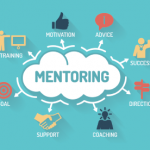Within the rheumatology community, we are fortunate to have structured mentoring opportunities funding from the Rheumatology Research Foundation to nurture the development of future rheumatologists and rheumatology professionals interested in clinical practice and clinical research.
For short-term mentoring, the Foundation offers four-to-eight-week awards for preceptorships for medical and graduate students interested in exploring the field of rheumatology. These awards offer an opportunity for trainees to work closely with an ACR/ARP rheumatology mentor to learn about the field.
For longer-term opportunities, the Foundation offers a two-year Future Physician Scientist Award (for MD-PhD or DO-PhD candidates) and a three-year Scientist Development Award (for rheumatologists and rheumatology professionals) to pursue innovative research ideas.
Awards created by the ARP and administered through the Foundation are the Mentored Nurse Practitioner (NP) and Physician Assistant (PA) Awards for Workforce Expansion. These awards offer one-year mentorship arrangements between NP/PAs and an ACR member rheumatologist. Since its inception in 2019, 37 awardees across the U.S. and Virgin Islands have benefited from these mentorship awards.
Other opportunities for formal mentorships are available through the National Institutes of Health (NIH) in the form of K awards (e.g., K01, K12 and K23). Within institutions, T-32 grants may be available. Three-year mentoring awards are offered by the Childhood Arthritis and Rheumatology Research Alliance (CARRA) and the Arthritis Foundation for early career investigators in pediatric rheumatology.
Successful Partnerships
Successful mentorship, though desirable, often proves elusive. It demands an investment of time and resources, mutual respect and clear communication from both the mentor and mentee. It is helpful when both the mentor and mentee can acknowledge and share their interests, perspectives, mutual goals and preferences as part of the evaluation of overall fit.
Mentors
Mentors need to be patient while offering guidance, coaching and feedback. They need to have an altruistic spirit and exhibit a commitment to supporting the mentee’s personal and professional growth and intellectual independence. Optimal mentors are often described as generous, empathetic and selfless.4
Active listening is a key skill used by mentors to understand what is said, as well as left unsaid because mentees are sometimes reticent to express themselves. A good mentor is aware of the common concerns about competence and finding an appropriate work-life balance that all mentees harbor and actively creates a safe environment in which mentees feel able to take risks.
A high level of emotional intelligence is helpful for mentors to discern when to listen and when to gently ask about progress or give feedback in areas that may be challenging for the mentee. Mentors also must be able to help mentees recognize their strengths and weaknesses without judgment, and use this knowledge to help the mentee achieve their goals.



